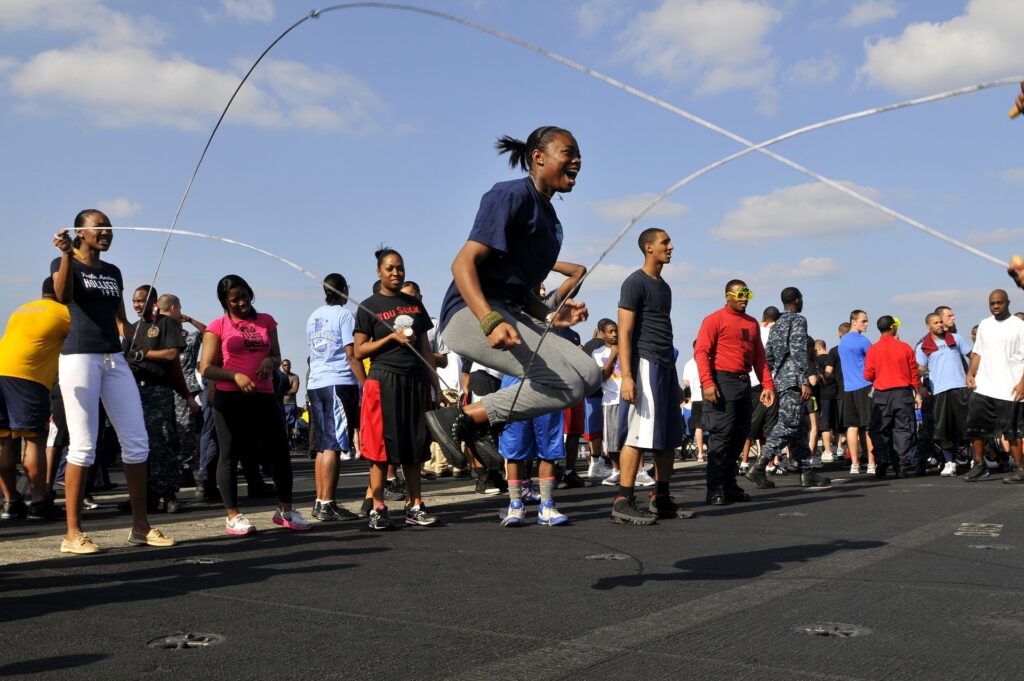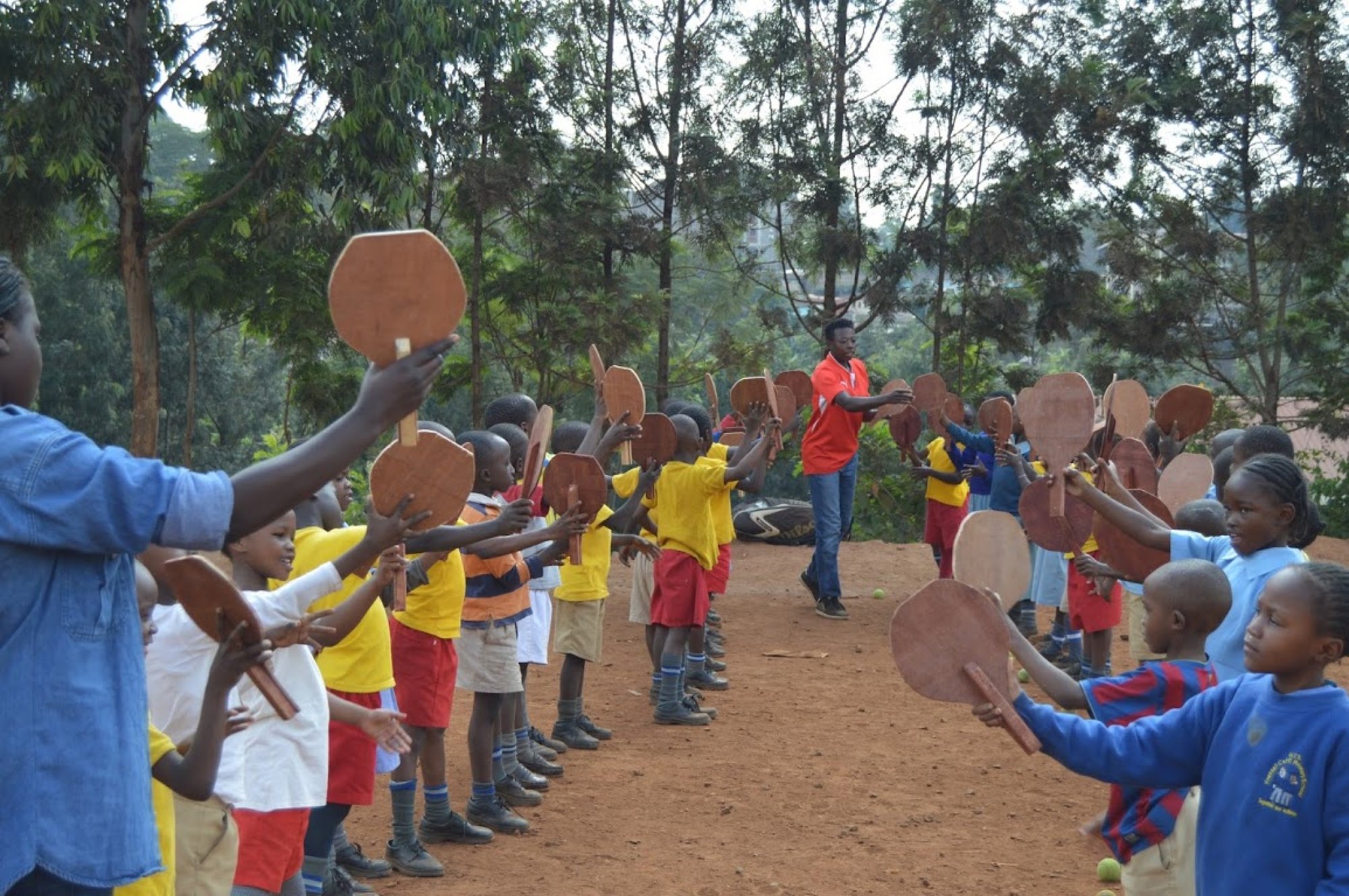Dexterity and Agility begins early
I grew up in Kisumu, a small city near Lake Victoria. The hot climate provided ample opportunity for me to play outside all day, and I was introduced to local African games like “Bladda” and “Pacho”. “Bladda” is a Kenyan game in which individuals or teams compete in creating patterns using rubber lengths from inner tubing (bladder) often recycled from old car or bicycle tires, trimmed into thin strips and tied together.
Bladda
This game, more popular amongst young girls, requires a lot dexterity, ability at high jump and precision. Pacho” is a series of obstacles that individual players must pass through in order to get “home” or “pacho”. It is often played in teams. The word “Pacho” means a traditional home amongst the Luo ethnic group. The obstacles are created by the children and can change with prevailing individual creativity. When I was 9 years old, my family moved to a middle-class estate in Langata suburbs of Nairobi, Kenya’s capital city. I felt isolated: homes were separated by fences, neighbors barely talked to one another, and children were often forbidden to step out of their compounds. I did, however, make friends with other children, whenever I went out to the local shopping center on an errand, and we secretly organized competitions for “Bladda”. I was rarely missed, I think, because my parents believed that I had the skills to take care of myself, which I learned from interacting with other children.















